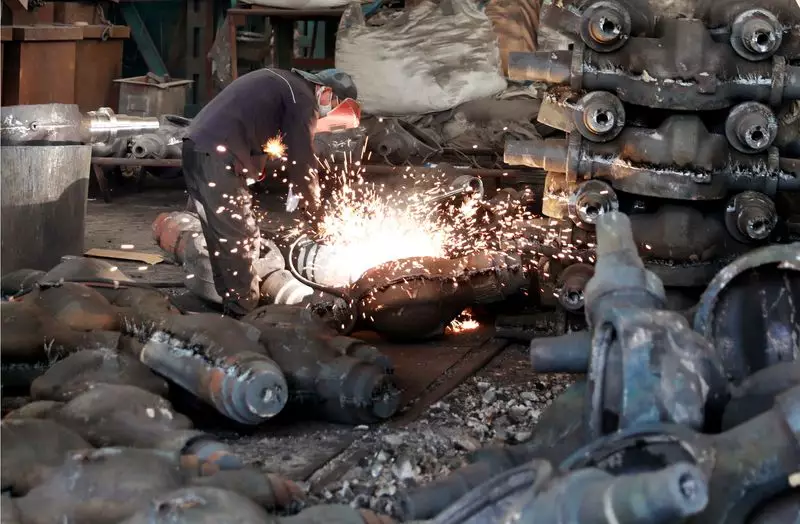China’s economy has been facing significant challenges in 2021, with manufacturing activity falling for the second consecutive month in June. The National Bureau of Statistics (NBS) purchasing managers’ index (PMI) recorded a reading of 49.5, below the 50-mark separating growth from contraction. This has led to calls for further stimulus to help the economy recover.
While the official PMI data may not fully capture the strength of industrial activity, there are concerns about the capacity of China’s manufacturing sector to meet external and domestic demand. Despite a slight improvement in the production sub-index, other indicators such as new orders, raw material stocks, and employment remain in contractionary territory. This suggests that China’s manufacturing capacity may be underutilized, leading to a lack of recovery in producer prices.
The non-manufacturing PMI, which includes services and construction, also experienced a decline in June. The services PMI fell to 50.2, a five-month low, while the construction PMI dropped to 52.3, the weakest reading since July last year. This indicates that domestic demand remains constrained, with consumers remaining cautious and the boost from the Labour Day holiday fading.
Analysts expect the Chinese government to implement additional policy support measures in the short term to stimulate economic growth. While monetary policy easing may be limited due to pressure on the Chinese currency, fiscal policy is expected to play a more significant role in boosting domestic consumption. The issuance of more debt by the central government is seen as a way to increase overall domestic demand.
Despite the government’s efforts to support the economy, challenges such as high local government debt and deflationary pressure continue to cast a shadow over recovery prospects. Measures such as the relending program for affordable housing are aimed at addressing the oversupply of housing stock, but more needs to be done to reduce the economy’s reliance on the property sector. Premier Li Qiang emphasized the importance of developing new industries to drive economic growth and reduce dependence on traditional sectors.
Economists and investors are closely watching the upcoming Third Plenum, where top Communist Party officials will gather to discuss economic policies. The outlook for China’s economy remains uncertain, with the need for continued policy support to spur growth and address structural challenges. Despite the current challenges, there is optimism that China’s economy will gradually improve over the second quarter of the year.
China’s economy is facing a challenging period in 2021, with both manufacturing and service sectors experiencing a slowdown. While policy support measures are expected to provide some relief, structural challenges such as high debt levels and deflationary pressure will continue to impact the economy. It is essential for the government to implement effective measures to stimulate growth and reduce reliance on traditional sectors to ensure long-term sustainability and stability.

